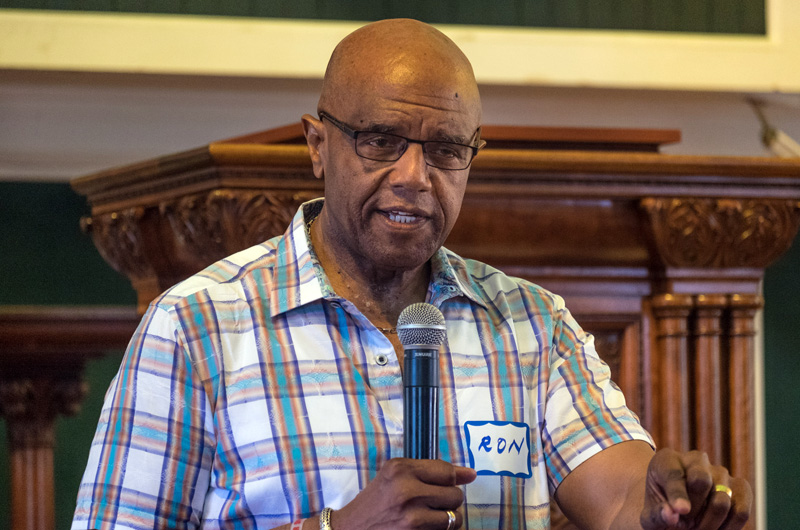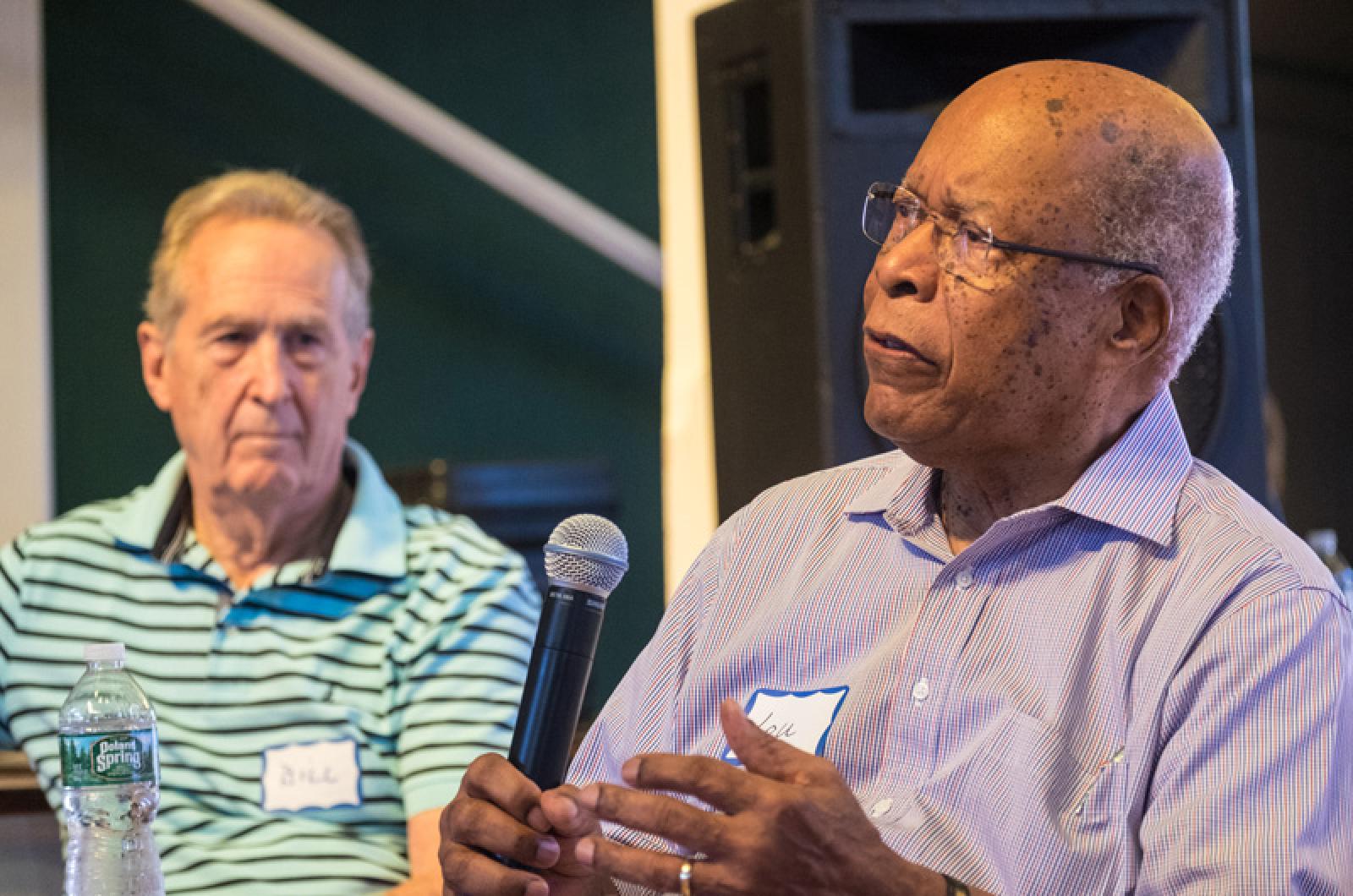Former U.S. Secretary of Health and Human Services Louis Sullivan cited a troubling contradiction in America’s founding document.
“That Declaration stated that all men are created equal . . . Many of the signatories . . . were themselves owners of other people,” he said Monday morning at the Union Chapel on the eve of the nation’s birthday. “Our tortured history as a nation has recorded our individual and our collective efforts to right these wrongs.”
Titled Toward Re-Uniting the Disunited States of America, the event was intended to provoke discussion about freedom of speech on college campuses and racial tension and policing. About 50 people attended.
Dr. Sullivan, a longtime Oak Bluffs summer resident who served on the cabinet under President George H. W. Bush, pointed to the progress made nationwide while also noting the work that has yet to be done. In particular he mentioned police brutality toward communities of color. He discussed the Black Lives Matter movement as a response to these incidents, drawing a parallel to the civil rights movement of the 1960s and 1970s.

Opening up the conversation to the audience, he asked: “How do we regain the momentum of the sixties and the seventies and build upon it?”
Many who attended suggested that creating mutual trust and respect is critical to advancing race relations in America.
Oak Bluffs police chief Erik Blake emphasized the importance of good community relations and trust. “I’m not an apologist for bad things in law enforcement, but I will apologize for things that go wrong with law enforcement,” he said. “I believe that you need strong leaders in law enforcement that are willing to have conversations like this, are willing to fire people for acting inappropriately.”
Bob Tankard added: “We’re not all created equal according to what we see today . . . If we give everybody the same respect, then we’ll see change.”
Respect also took center stage in a conversation about free speech and political correctness on college campuses.
Zach Wood, a rising senior at Williams College, spoke about Uncomfortable Learning, an organization he leads which brings provocative speakers to campus.
Mr. Wood suggested that respectful dialogue with those who hold different opinions helps to develop critical faculties among students.
Ronald Crutcher, president of the University of Richmond, agreed. “The cognitive dissonance that occurs when you are forced to interact with someone who is different from you . . . it really expands the brain,” he said.
Mr. Crutcher said free and open civic dialogue is crucial to the continued existence of the country.
“I think we’re at a point now in the United States of America where our democracy is not a fully formed adult,” he said. “I’m very concerned based on just what has gone on the last few years politically, the political contests, that the very bedrock of that democracy could be dislodged.”
Stephen Trachtenberg, president Emeritus of George Washington University, joked that Monday’s conversation was perhaps too civil.
Event organizer Bill Kaufmann said: “This is a small indication that maybe there’s some hope for the country, when you can get a diverse group of people — white, black, young, old, male, female — together to talk over some of these issues.”




Comments (4)
Comments
Comment policy »